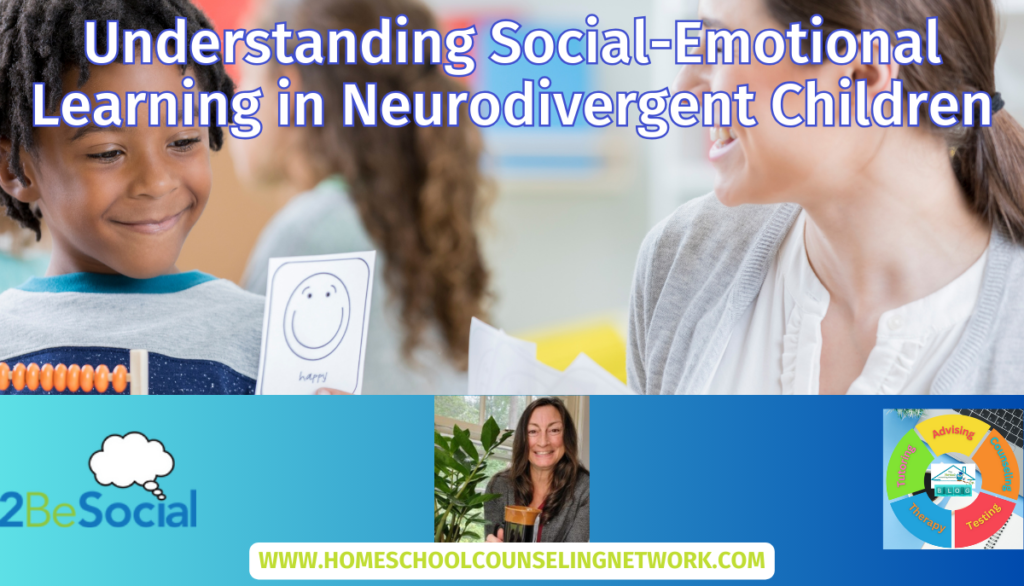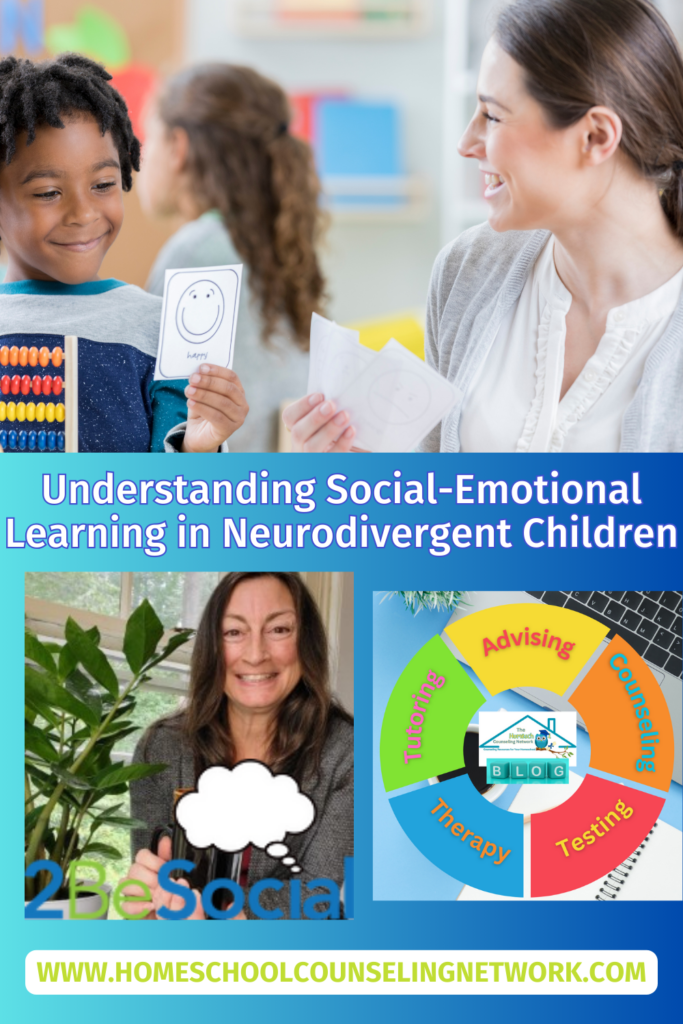Understanding Social-Emotional Learning in Neurodivergent Children

Social-emotional learning (SEL) is a critical component of a child’s development, enabling them
to understand and manage emotions, set and achieve goals, establish and maintain
relationships, and make responsible decisions. For neurodivergent children, this process is
profoundly influenced by executive functioning skills.
The Role of Executive Functioning in Social-Emotional Learning
Executive functioning encompasses a set of cognitive processes that include working memory,
flexible thinking, and self-control. These skills are essential for organizing information, thoughts, and feelings. Here’s how executive functioning impacts social-emotional learning:
● Organizing Information: Neurodivergent children often struggle with sorting and
interpreting social cues, leading to challenges in understanding expectations and
navigating social interactions.
● Managing Thoughts and Feelings: The ability to regulate emotions and thoughts is
crucial for responding appropriately in social situations. Difficulties in this area can result
in misinterpretations and inappropriate responses.
● Understanding Expectations: Executive functioning aids in comprehending social
norms and rules. Neurodivergent children may find it hard to grasp these unspoken
guidelines, leading to social misunderstandings.
● Reading Others and Taking Perspective: Empathy and perspective-taking are central
to SEL. Challenges in executive functioning can make it hard for neurodivergent children
to see things from another’s viewpoint, affecting their ability to connect with peers.
● Responding Appropriately: Effective social interactions require quick, appropriate
responses. Struggles with executive functioning can cause delays or missteps in
communication
The Impact of Neurodevelopmental Delays
Neurodivergent children often experience neurodevelopmental delays, which can be up to six
years behind their neurotypical peers. This delay means that a neurodivergent child’s
social-emotional development might not align with their chronological age. Consequently, these children might be perceived as defiant or dismissive when, in reality, they are navigating
complex developmental challenges.
Shifting Parental Mindset
As parents, it’s crucial to shift our mindset to support our neurodivergent children effectively.
Here are some signs that indicate your child may be struggling due to these challenges:
● Difficulty Following Social Norms: Your child may not adhere to social expectations,
often appearing to act out or ignore rules.
● Struggles with Empathy: They may have trouble understanding others’ emotions or
perspectives, leading to conflicts with peers.
● Emotional Outbursts: Frequent meltdowns or extreme reactions to seemingly minor
issues can signal difficulties in managing emotions.
● Misinterpretation of Social Cues: Your child may frequently misread body language,
tone of voice, or facial expressions.
● Inconsistent Responses: Their reactions to similar situations might vary greatly,
indicating challenges in regulating their responses.
Strategies for Parents
Supporting a neurodivergent child involves understanding their unique needs and adjusting your approach accordingly. Here are some strategies to help:
- Educate Yourself: Learn about executive functioning and neurodevelopmental delays to
better understand your child’s challenges. - Practice Patience: Recognize that your child’s behavior is not willful defiance but a
manifestation of their developmental stage. - Model Emotional Regulation: Demonstrate how to manage emotions effectively. Your
behavior serves as a powerful example. - Break Down Social Expectations: Simplify and clearly explain social rules and
expectations. Use visual aids or role-playing to reinforce these concepts. - Encourage Empathy: Help your child practice perspective-taking by discussing different
viewpoints and encouraging empathy through stories and discussions. - Provide Structured Support: Create routines and structure to help your child feel
secure and understand what is expected of them. - Celebrate Small Wins: Acknowledge and celebrate your child’s progress, no matter
how small. Positive reinforcement can boost their confidence. - Seek Professional Help: Consider working with therapists or counselors who specialize
in executive functioning and social-emotional learning. - Build a Support Network: Connect with other parents of neurodivergent children for
support, advice, and shared experiences. - Focus on Strengths: Identify and nurture your child’s strengths and interests. Building
on their positives can help mitigate some of the social-emotional challenges they face.
By understanding the intricate link between executive functioning and social-emotional learning, parents can better support their neurodivergent children. Shifting our mindset to recognize their developmental delays and adopting effective strategies can lead to a more harmonious and supportive environment, fostering growth and resilience in our children

About the Author

Want To Write For Us?
Learn more about how you can become a guest blogger for The Homeschool Counseling Network here.

Let’s Keep In Touch
Be sure you do not miss a blog post by signing up for our newsletter or joining our Facebook group.
Blessings,
Kimberly Bennett, LPC
Founder/CEO It’s Only Homeschooling
Founder/CEO The Homeschool Counseling Network

This website is not a professional counseling website and nothing here should be construed as professional counseling advice. Although Kimberly Bennett, LPC is a Licensed Professional Counselor, she is not your counselor, and no counselor-client relationship is established unless she has signed an agreement with you. All information provided through this website is for informational and educational purposes only.